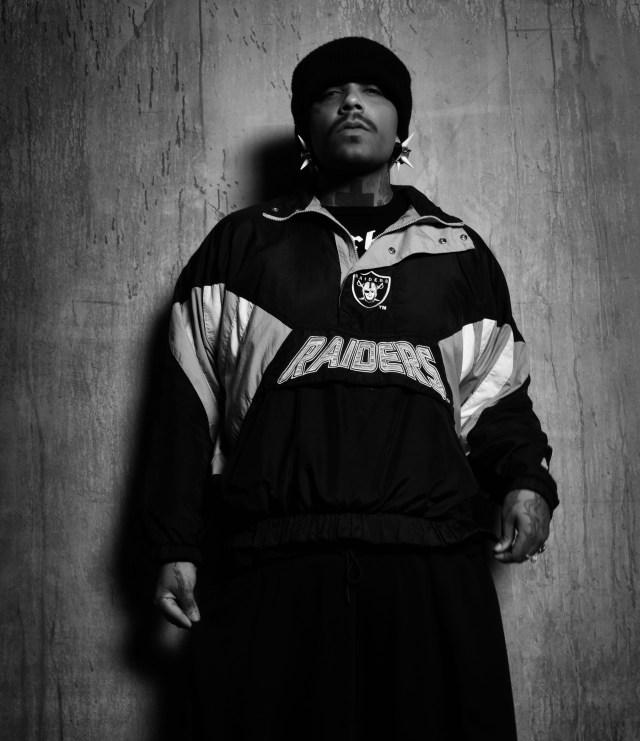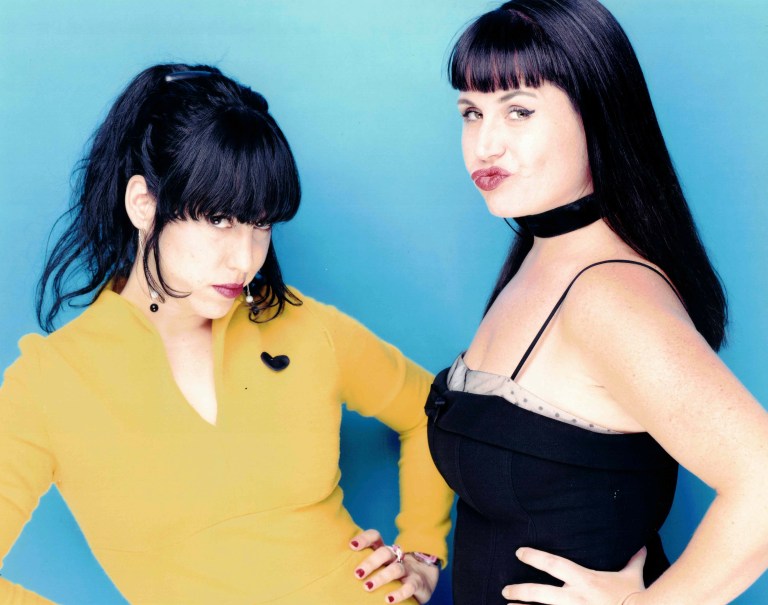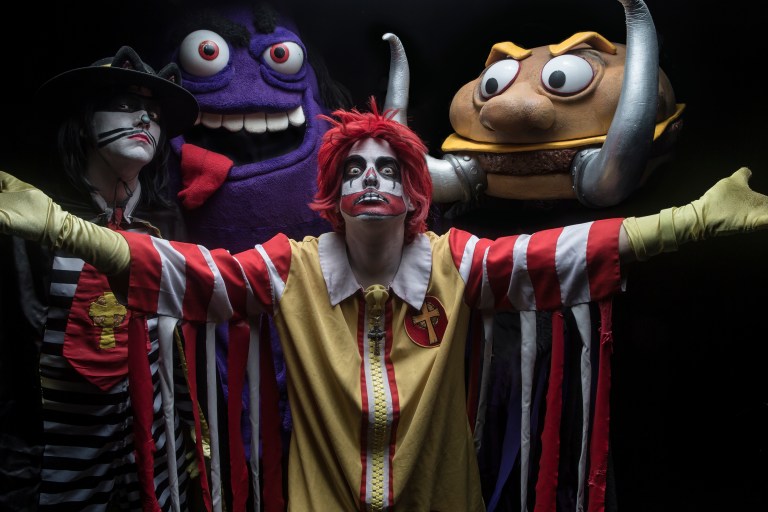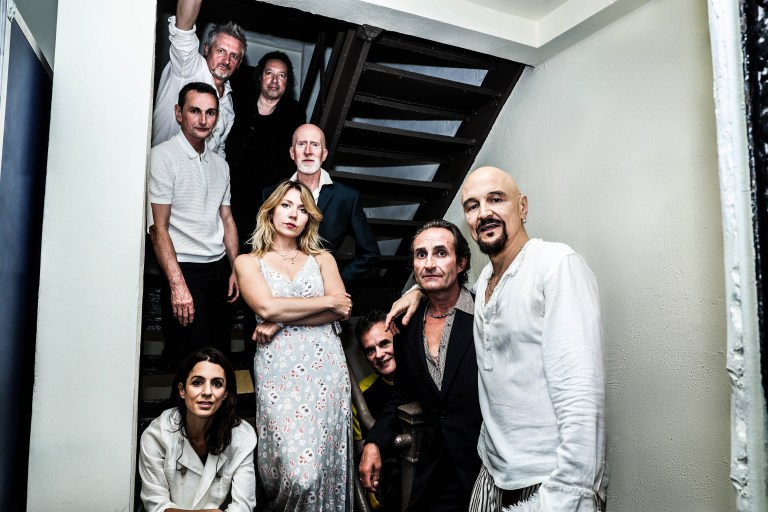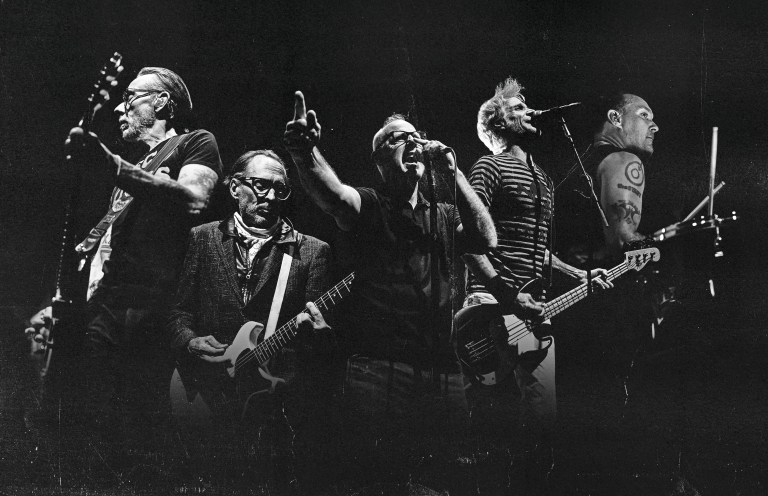Nashville, TN, (11:15 pm)
I met with Jean outside Bridgestone Arena. He comes off the bus with shades, metallic earrings, and a vintage Deftones shirt that most people my age would sell their kidneys for. The thing that stood out the most was his smile, a kind but firm one. Leaving no room for doubt, the person he presents on stage is not just that. The crowds of people lobbed compliments his way. He returns them with honest gratitude. Without pause, he would respond to the person passing us, then flow directly into the latter half of the answer to my question. He treats both the fans and me with a level of sincerity that far surpasses what would have been acceptable for an artist who had just opened for Linkin Park.
Let alone one fresh from the release of his single Rock A Bye Baby from his upcoming deluxe. Jean is an enigma; any label applied would be shed by the time this prints. The 29-year-old is a jack of all trades. His third studio album, Glimmer of God, dropped late last year. Weaving ’80s pop with ’70s guitars and vocals straight out of a unique existence. The record is impressive, the next step in what I would consider an era primed for Jean. Which seems to be what he wants. Luckily, I got to touch on some of this with him…
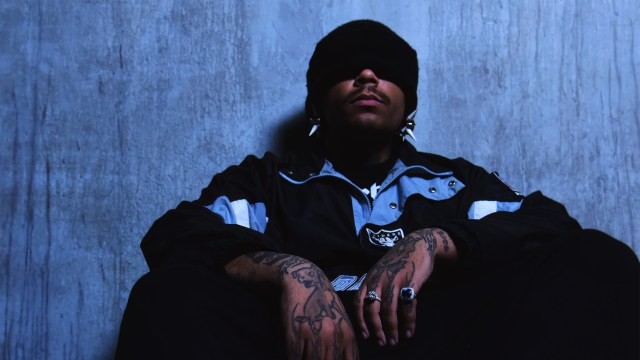
I’m going to give you some anime characters, and you tell me what you think their favorite song or genre would be.
Saiki k-: Ambient
Freiren: Bob Marley
Tetsuo: I’ve seen footage of Death Grips
Kakashi: When Doves Cry, Prince
One piece of media you think everyone should watch, read, or listen to?
“Everybody should listen to and read Dungeon Crawler Carl. It’s a great audiobook; I think the author is Matt Dinniman, but I could be wrong. (he is correct.) Everyone should listen to the soundtrack to Max Richter’s 2004 opus rendition. (cannot find a 2004 version, but there is a recording from 2020). They should watch Summer Wars.”
One album that got played the most at home as a kid?
“What’s Too Short’s second record? The one where the second one is in a player? (he asks his long-time manager, who he labeled as a big brother figure.) Players– sick.”
In a lot of articles, everyone asks you about genre; it’s a very common thread that may be a hard question to answer. I know I’m now one of those people, but do you find genre discourse important?
“Sure, in the same way when you go into the grocery store, you’re looking for cucumbers, and you’re not going to go to the pillow section. Or you’re in Target and you want to find a fucking phone charger; you’re not going to look in this other section. So, for the ease of categorization, genre will always be important. I think I’m the product of a generation that’s had every type of music available at our fingertips. I was born in ’95, so by the time I was 10, I had my first MP3 player. With that being said, for me, I’m more concerned about era jumping than genre bending or genre confinement. I want to explore what the 70s are. I want to explore what the 80s were. It’s like I’m borrowing nostalgia and mutating it while also preserving it. So yeah, for the sake of you wanting to find something and you wanting the ease of finding it, I think definitely genre is important. But I think it shouldn’t dictate what you like; it’s just words.”
Speaking of the availability of music, in a Lollapalooza interview, you mentioned the encyclopedia of music we have available today. As an artist, do you think fans expect more because they hear more or are more open to hearing new things?
“I think for a long time music has been bottlenecked, right? Access to being able to put out music was limited or confined to knowing someone who had the proper tools and resources. Now, in the generation we have and live in, kids have BandLabs; they have all these programs they can use to make music. So now you are getting a full spectrum of people echoing one another in an echo chamber. But also coming up with new ideas. I think people are always going to be looking for something to score a moment of their life. Music has served that purpose for generations, since music began. I think now, one of the biggest/most important things we have is a bridge to that. That gets way too nuanced. You like shoegaze? What about the shoegaze from Delaware or the shoegaze from Milwaukee, or rather, New Jersey? You can get really granular about the things you like and how they influence you. I think people are more open to finding what makes them tick. So more music is better, in my opinion.”
A lot of times, you talk about wanting to be a supplement to people. Where did the idea start from, and who would you say was a supplement to your life in the way you want to be for others?
“Do you take vitamins? I think the study is that you only keep 5% of the vitamins in your system. I could be misquoting, but the rest you piss out. That’s what we are as musicians; you take the 5% of the thing that helps you get by. I don’t idealize or idolize musicians. They’re just fucking humans, but I do think the impact they have on the world in general supplements a generation of sound and supplements a generation of truth. From person to person, it will change, but for me, other musicians have supplemented me a lot more than 5%. That’s just because I live and breathe it. It sticks to my ribs a little harder. I have a lot, all of them, every musician who has come before. Music doesn’t come from me, but through me. So I think I’ve been supplemented by everything.”
I like that more; it feels more complete.
“Yeah, my inheritance makes me a nepo baby. As in not that my parents are rich, none of that. I have none of that in my family. I was the first person in my family to make art. I’m not the first person who’s been an artist. So my nepotism doesn’t come from wealth that will buy you a car, but the wealth that supplements the soul. Every musician has impacted me, whether I listened to them or not.”
Before Glimmer of God dropped, you talked about being on the precipice of your “opus.” Is that a feeling of motivation?
“Yeah, I said it before: I hate absolution. Opus is absolution; it’s like this is the best thing you will ever make. My opus will be my children; they will be the best creation I’ve ever made. Now I don’t have children, nor is anybody pregnant around me, but that’s the only absolution I like. We live, we die; everything in the middle is wishful thinking. So if I’m always chasing the unattainable goal, I think it will make my work better.”
What is one stop on the tour that really stuck with you?
“This show, Nashville. You can feel when people are surrounded by music. You know, walking around, whoa, there’s a dude singing his heart out on the corner. The audience—they are open to music; when you feel it, it’s pretty undeniable. Whenever I play in Minneapolis, it’s just the influence Prince had on me that always feels special, too.”
Speaking of Nashville at this show and your last time here, you covered James Brown’s “It’s a Man’s World.” What was the reason for that, and was it a stop-by-stop thing or when it felt right?
“When it feels right. If there’s no James Brown, there’s no Michael Jackson. If there’s no James Brown, there’s no Prince. You can kind of say if there’s no James Brown, there’s no Hendrix. If there’s no Larry Graham, there’s no Prince. It’s just kind of an homage to the people who came before me. In a way, it’s like the spirit still lives. It’s why I want to do Springsteen’s “Born in the U.S.A.”; that’s the same feeling for me.”
Does it feel like a passing of the torch?
“I wouldn’t say that unless they gave it to me themselves. What I will say is I don’t want people to forget. I think now in music we are impressed with 15 seconds. That’s all we get to figure out if we like something. I’d rather make music that lasts 15 generations, not 15 minutes, 15 seconds, or 15 years. I want 15 generations of people. Not for my own fucking stature or whatever. Really, from the idea that if I did one thing, and some kid from the middle of nowhere is like, ‘I like that thing.’ Then I want to utilize that thing because we are all tools for the next. Every musician is nuanced from the musicians who came before them. I just want to do my part of leaving little breadcrumbs of ‘Hey, man, you can do that.’ There’s nothing that says you can’t.”
A lot of your creative ideas are complex, multi-layered music, visuals, videos, and characters. How important is it that the people around you don’t need to understand but just trust your creative vision
“It’s definitely important that my team has a lot of trust in me. I call my manager, who’s like my older brother (Greg Mateo). I’ll call him at 3 am, being like, ‘I have this idea!’ He wakes up, and he’s like, ‘okay.’ He needs to say something. I need to tell someone, or I’m going to explode, and he listens. I’m like, ‘Look, I want to do visuals.’ When I did Chaos Now I wanted to do a chapter book like a kids’ novel. I want it to be inspired by this one single quote: ‘It’s no fun when the rabbit has the gun.’ So the rabbit for me is like, ‘Fucking, how deep do you want to get?’ Not understanding yourself is why it was chaotic. Chaos Now was written in crayon. Not literally, but that’s what it felt like. It felt like it had to be written in crayon. It has run-on sentences. He’s like, ‘I don’t know what the fuck you are talking about, but I trust you; it’s going to sound fine.'”
You’ve toured with a lot of cool artists. How important is the variety of experiences, for example, Quadeca versus Linkin Park? Different collaborators like A$AP Rocky and SZA. How do you go about choosing that, and what do you take from those experiences?
“I say no a lot, just because sometimes I feel like I can’t add to anything. I get offered to do something, and I’m like, ‘I can’t add to your world.’ Your world is fully encompassed within itself. Sometimes the little nerd in me comes out, putting A$AP Rocky over an acoustic guitar; that’s interesting. Me and SZA having a really stripped-back singing scene song. We confess things, and I feel like there’s a certain amount of honesty. Especially in “No Szns”, that’s just honest. Bearing yourself to the idea, you’re going to be perceived no matter what. So let me tell you a little bit about myself. I hate doing features. I don’t want a feature, I don’t want to be on a feature, and I don’t want to ask anyone for a feature. What I will say is that no one wins an award for art being innately masturbatory. Where it’s like self-fulfilling, you’re jerking yourself off. I think one of the coolest things that happens in music is that there are crossovers that the world doesn’t know it needs. You might do it, and the world still doesn’t need it, but you allow that to happen. Take two of your favorite artists that have nothing to do with each other. Put them in a room and go have fun. Figure it out; maybe something beautiful happens. Maybe it’s like, ‘Oh, that was cool; it’s a mute note.’ I think being open to the idea of it has allowed me to explore in different ways. Doing tours with Yachty, Linkin Park, and this variety. People are like, ‘What genre are you?’ I can go play with whoever because at the end of the day, genre is only important when I’m trying to file a cabinet, not when I’m trying to experience this emotion. I can put all the sad songs in one pile and be like, ‘These are all the sad songs that have ever been made.’ Do they all sound the same? Fuck no. Are they all the same genre? Fuck no. Are they all played in minor? Most of them would be, but they all fit.”
Are we ever going to get a Spanish album?
“Absolutely, but it’s got to be great. In order for it to be great, it has to find its identity. I didn’t want to do something that’s contrived. I wanted to do something that’s of my influences and how I push them forward. In a way where I’m taking things, mutating them, but also preserving what they mean to people already. I really want to do an imitation of a song called “Payaso” by Javier Solis. It’s my grandfather’s favorite artist and song. I’ve tried to do it like a hundred times, and every single time it’s wrong. When I find a way that’s right, we will get there. “
How important is inspiration from that love from the person in your life that made you feel that? That leads to a song or moment?
“It’s everything, man. “The Boy and the Swan”, it’s one of the most important moments in my life that has ever happened. It happened in front of an audience of a thousand people. I played a show in Vegas; it was the first time my mom and dad were in the same room together since I was a child. They got divorced or whatever. I’m singing “Power Freaks”, and I’m coming off stage to give my mom a hug. While the song is still playing, I give him a hug, then I’m like, “move, you’re going to make me cry.” Then I go around to the other side, and my dad gives me a hug. I feel both my parents hugging me, and I feel like I’m in my mom’s womb. The boy and the swan is about that specific moment. After that show, I couldn’t talk for an hour. I had to sit by myself. My parents don’t talk to each other or communicate, but in that moment, they both gave me a hug. They were hugging each other, and I felt like a baby. Those moments that feel like love are few and far between. When they do happen, they are really important.“
